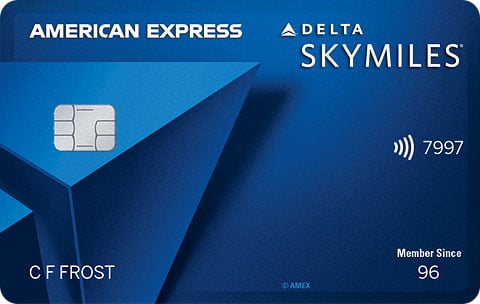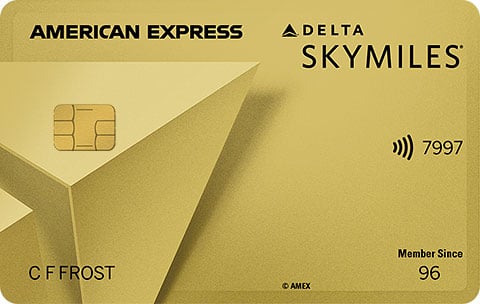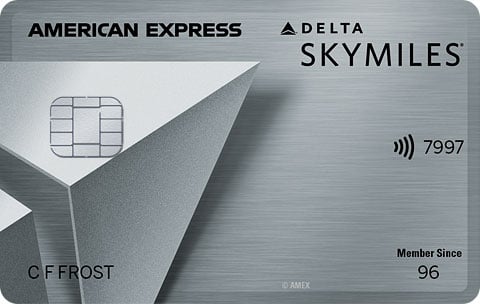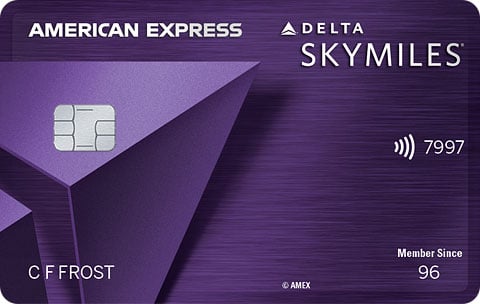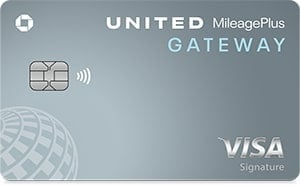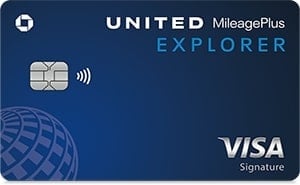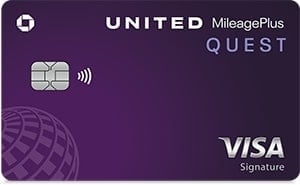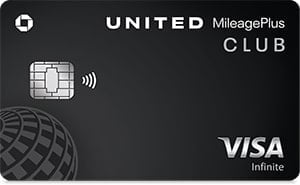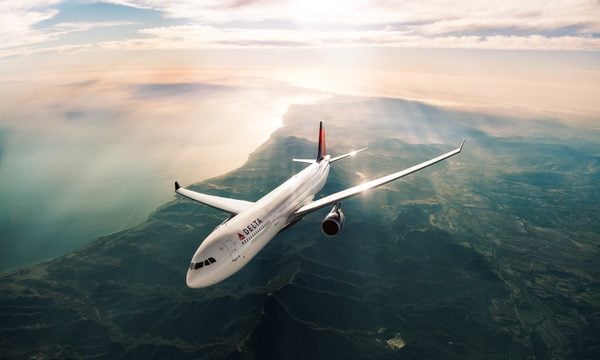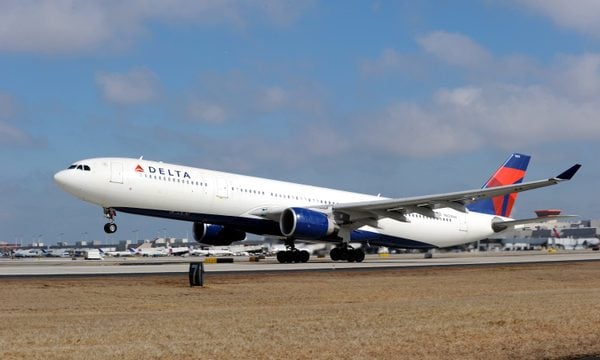Delta vs. United Airlines: Which Is Best For You?
United and Delta have a few key differences, including the carry-on baggage allowance if you fly basic economy.
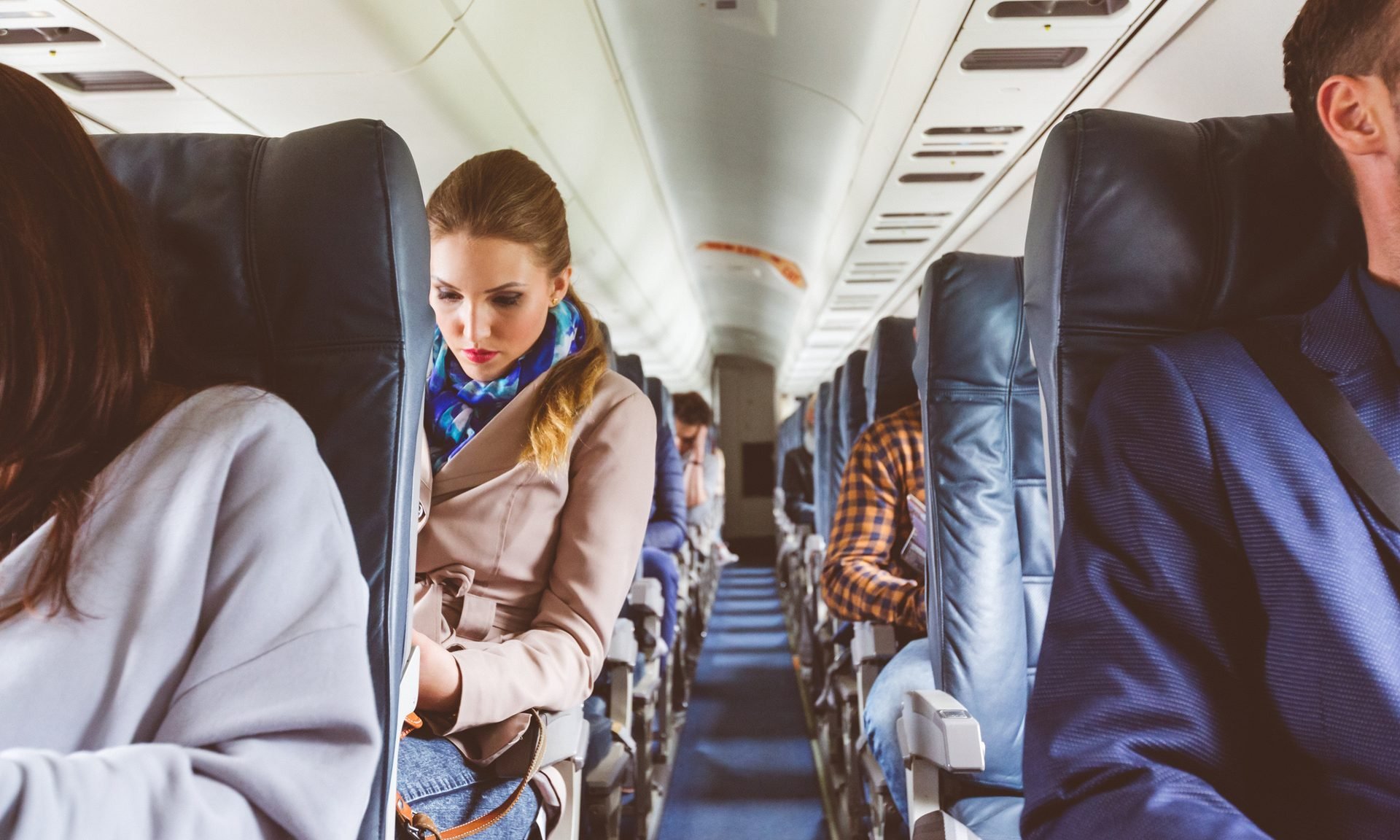
Many or all of the products on this page are from partners who compensate us when you click to or take an action on their website, but this does not influence our evaluations or ratings. Our opinions are our own.
As two of the largest U.S.-based carriers, Delta Air Lines and United Airlines have many similarities, but there are a few things that set them apart. The main differences between United and Delta are:
- Delta charges lower carry-on bag fees on basic economy tickets.
- United is a member of Star Alliance (the largest network with 26 airlines), while Delta is part of SkyTeam (a smaller alliance with 19 airlines).
- Delta’s most expensive credit card, which provides Sky Club lounge access, also offers entry to American Express Centurion Lounges, while United’s most expensive card grants entry only to United Club lounges.
- United’s award tickets are generally cheaper than Delta’s.
So, which is better for your individual travel needs, preferences and budget?
A side-by-side comparison will let you decide which is better, Delta or United.
Where they’re based and where they fly
Winner for most options: United
Delta
Delta Air Lines passengers can fly to nearly 300 destinations on six continents. As a SkyTeam member, the airline partners with 18 other global carriers that cover 1,050 destinations in 166 countries.
Delta U.S. hubs:
- Atlanta.
- Boston.
- Detroit.
- Los Angeles.
- Minneapolis.
- New York (JFK and LaGuardia).
- Salt Lake City.
- Seattle.
Delta’s key international markets:
- Amsterdam.
- London-Heathrow.
- Mexico City.
- Paris-Charles de Gaulle.
- Seoul.
- Tokyo.
United
Star Alliance member United Airlines covers more than 330 destinations across five continents: about 210 U.S. cities and more than 120 international destinations.
Star Alliance is the world’s largest alliance and includes 26 carriers serving more than 1,200 airports, which gives you a lot of global connection options for a vacation.
United U.S. hubs:
- Chicago.
- Denver.
- Guam.
- Houston-Intercontinental.
- Los Angeles.
- Newark.
- New York-LaGuardia.
- San Francisco.
- Washington-Dulles.
United’s key international markets:
- Frankfurt.
- London-Heathrow.
- Sao Paulo.
- Tokyo (Haneda and Narita).
Get the 'Cheat Codes' to Cheaper Travel
Unlocking the secret to saving a ton on travel is easier than you think. 📤 Our free newsletter shows you how in 5 min. or less.

Reliability
Winner for reliability: Delta
Delays and other operational issues can affect your travel day significantly. Although it’s hard to achieve complete Zen while at the airport, it helps knowing which airlines are more reliable in terms of on-time arrival and tarmac delays.
We’ve compiled operational data for Delta and United between July 2022 and July 2023 and have concluded the following:
| Airline | On-Time | Cancellation % | Mishandled luggage % |
|---|---|---|---|
| Delta | 80.27%. | 1.37%. | 0.46%. |
| United | 78.84%. | 1.34%. | 0.69%. |
Delta beats United in on-time performance, tarmac delays and overall flight cancellation rate. When it comes to reliability, we’re going with Delta on this one.
» Learn more: Which airline is the most reliable?
Fees
Winner for lowest fees: Delta
Fees have become an integral part of air travel, but the amounts vary across the industry.
For this section, we’ve compiled a few different data points: the cost of a checked bag on a domestic itinerary, the cost of a carry-on bag when flying basic economy on domestic itineraries and the average seat selection cost.
So, which is better: Delta or United?
| Airline | One checked bag (domestic) | One carry-on bag in basic economy (domestic) | Average seat selection |
|---|---|---|---|
| Delta | $35. | $0. | $24.99. |
| United | $35 (if added 24 hours before departure), $40 otherwise. | $35 unless the passenger has elite status or certain United credit cards. | $58.49. |
Although the margins are slim, Delta wins this round with the lowest fees across the board. Additionally, the checked baggage fees are the same whether you pay for a bag at check-in or at the airport. United, on the other hand, charges a bit more for deciding to check luggage at the bag drop-off point.
Additionally, Delta allows one carry-on bag that will fit in an overhead bin for free. United does not (more on this below).
» Learn more: Which airlines have the best (and worst) fees
Basic economy
Winner for best basic economy tickets: Delta
When pitting Delta versus United, it’s important to compare their basic economy fare policies and decide whether saving a few bucks is worth it.
| Airline | Markup | Free overhead carry-on | Earning redeemable miles | Elite status qualification rate | Elite upgrades | Boarding group |
|---|---|---|---|---|---|---|
| Delta | $50. | Yes. | 0%. | 0%. | Not eligible. | Zone 8 (final boarding group). |
| United | $9 - $50. | No, fee is $35, unless the passenger is flying to select international destinations, has elite status or certain United credit cards. | 100%. | 100% of Premier Qualifying Points and 0 Premier Qualifying Flights. | Not eligible. | Group 6 (final boarding group). |
As you can see, Delta’s basic economy tickets don’t earn redeemable miles or elite status credits. It also costs more to upgrade a Delta basic economy ticket to a main cabin ticket.
United, on the other hand, lets you earn more redeemable and status miles, but your flight won’t add to the flight segment tracker.
The carrier doesn’t allow you to bring a bag on board on most routes unless you’re a MileagePlus Premier member or a primary cardholder of a co-branded United credit card.
If you make it to the gate with a carry-on bag, you’ll have to check it and pay $25 in addition to the standard checked bag fee.
Overall, we’d say that for a casual flyer, the scales are slightly tipped in Delta’s favor, only because it includes a free carry-on bag when flying basic economy.
» Learn more: Basic economy vs. main cabin
Loyalty programs
Winner for the best loyalty program: United
United’s long list of partner airlines means that your miles can get you more flights to more destinations than Delta’s partnerships can deliver. Additionally, United Premier status is easier to qualify for after some recent changes to the Delta SkyMiles program.
» Learn more: Best airline rewards programs
Delta SkyMiles
With Delta, you earn redeemable miles based on the cost of your ticket and not the distance you travel, at least on Delta-marketed flights. The miles are multiplied for every dollar spent toward base fare cost. In other words, taxes and fees don’t count.
So, here’s how many miles you earn when you fly Delta and credit your flights to Delta SkyMiles.
| Elite status level | SkyMiles you earn |
|---|---|
| General member | 5 miles per $1. 7 miles per $1 in Main Cabin Extra. |
| Silver Medallion | 7 miles per $1. |
| Gold Medallion | 8 miles per $1. |
| Platinum Medallion | 9 miles per $1. |
| Diamond Medallion | 11 miles per $1. |
When you fly other SkyTeam partners and credit your flight to Delta SkyMiles, you earn miles based on a percentage of distance flown based on the ticket’s fare class.
As per NerdWallet’s valuations, Delta SkyMiles are worth about 1.2 cents each.
Unfortunately, Delta doesn’t publish award charts and instead prices out its flights based on demand. In other words, you can’t always get an outsized value for your SkyMiles when mileage rates for a ticket more or less correlate with its cash rates.
A good way to redeem Delta SkyMiles is by booking one of the occasional SkyMiles Deals. This limited-time sale on award flights can get you to your destination for as few as 5,000 SkyMiles each way. Not all redemption rates will be as low, but it’s a good place to start looking for your next vacation destination.
As for Medallion status, Delta caused quite an uproar when it changed its elite status qualifications. Starting Jan. 1, 2024, the only way to earn status in the Delta SkyMiles program is by earning Medallion Qualification Dollars (MQDs).
| Elite status level | MQDs required to earn |
|---|---|
| Silver Medallion | $5,000. |
| Gold Medallion | $10,000. |
| Platinum Medallion | $15,000. |
| Diamond Medallion | $28,000. |
You’ll earn 1 MQD per dollar spent on airfare on Delta- and partner-operated flights. You also have the option to earn MQDs with a co-branded Delta SkyMiles credit card:
- 1 MQD for every $20 spent with the Delta SkyMiles® Platinum American Express Card and the Delta SkyMiles® Platinum Business American Express Card.
- 1 MQD for every $10 spent with the Delta SkyMiles® Reserve American Express Card and the Delta SkyMiles® Reserve Business American Express Card. Terms apply.
» Learn more: Delta SkyMiles value calculator
United MileagePlus
When you compare Delta and United, you’ll see that their flight rewards earnings are identical. Program members earn redeemable miles based on their elite level and how much they spend with the airline.
| Elite status level | MileagePlus miles you earn |
|---|---|
| General member | 5 miles per $1. |
| Premier Silver | 7 miles per $1. |
| Premier Gold | 8 miles per $1. |
| Premier Platinum | 9 miles per $1. |
| Premier 1K | 11 miles per $1. |
Star Alliance carrier tickets earn redeemable miles calculated by a percentage of the total distance flown and the fare class in which you booked your ticket.
Based on NerdWallet’s recent valuations, United miles are worth 1.2 cents apiece.
One of the best ways to redeem United MileagePlus miles and increase their value is by booking a multicity round-trip ticket that includes a free stopover, also known as the Excursionist Perk. By using this strategy, you can book a one-way flight within your round-trip itinerary without redeeming extra miles.
United also partners with a lot more global carriers within the Star Alliance network, which means that your miles can get you more flight options to more destinations.
United MileagePlus members can earn elite status in the program by earning Premier Qualifying Flights (PQFs), or flight segments flown, and Premier Qualifying Points (PQPs).
You’ll need the following number of PQFs and PQPs to qualify for Premier status.
| Elite status level | Requirements to earn |
|---|---|
| Premier Silver | 15 PQFs and 5,000 PQPs, or 6,000 PQPs. |
| Premier Gold | 30 PQFs and 10,000 PQPs, or 12,000 PQPs. |
| Premier Platinum | 45 PQFs and 15,000 PQPs, or 18,000 PQPs. |
| Premier 1K | 60 PQFs and 22,000 PQPs, or 28,000 PQPs. |
The PQPs are based on the base fare and carrier-imposed surcharges on flights, as well as seat purchases and paid upgrades.
The recent Delta Medallion program updates make United Premier status easier to earn. So, if you’re gunning for elite status with an airline and have access to both carriers from your home airport, United might be a better option for you.
» Learn more: How to maximize the United Excursionist Perk
Travel credit card availability
Winner for the best airline credit card: tie
Delta and United offer credit cards with perks like free checked bags.
Both also offer premium cards with airport lounge membership, but Delta has a slight edge in this regard because its premium card offers access to the Centurion Lounges as well. Terms apply.
For a casual traveler, United℠ Explorer Card is slightly better than the Delta SkyMiles® Gold American Express Card because it comes with two one-time United Club passes. Terms apply.
Overall, both airlines’ card offerings are similar enough to call it a tie in this department. Your pick in the Delta versus United credit card battle largely comes down to which carrier you fly more often and whose credit card perks you’re likely to use.
You don't have to be a travel rewards expert to use credit cards to make travel more affordable. Here are your airline credit card options, broken down by airline.
Delta credit cards
American Express issues several co-branded credit cards to Delta flyers. Here’s a closer look at all the options, ranging from those with a $0 annual fee to one with a $650 annual fee.
Delta SkyMiles® Blue American Express Card (Annual fee: $0, see rates and fees)
Welcome bonus: Earn 10,000 bonus miles after you spend $1,000 in purchases on your new Card in your first 6 months. Terms Apply.
Earning rates:
- 2 miles per $1 spent on Delta purchases and at restaurants.
- 1 mile per $1 spent on all other eligible purchases.
Other benefits:
- 20% back on in-flight purchases.
- Pay with Miles.
- No foreign transaction fees.
Terms apply.
Delta SkyMiles® Gold American Express Card (Annual fee: $0 intro for the first year, then $150, see rates and fees)
Welcome bonus: Earn 70,000 Bonus Miles after you spend $3,000 in purchases with your new Card, and an additional 20,000 bonus miles after you make an additional $2,000 in purchases on the Card, both within your first 6 months. Ends 04/01/2026. Terms Apply.
Earning rates:
- 2 miles per $1 spent on Delta purchases, at restaurants and at U.S. supermarkets.
- 1 mile per $1 spent on all other eligible purchases.
Other benefits:
- Free checked bag for up to nine passengers.
- Save 15% when redeeming SkyMiles for Delta flights.
- Zone 5 priority boarding.
- $200 Delta credit after making $10,000 in purchases.
- 20% back on in-flight purchases.
- Pay with Miles.
- No foreign transaction fees.
Terms apply.
Delta SkyMiles® Platinum American Express Card (Annual fee: $350, see rates and fees)
Welcome bonus: Earn 80,000 Bonus Miles after you spend $4,000 in purchases with your new Card, and an additional 20,000 bonus miles after you make an additional $2,000 in purchases on the Card, both within your first 6 months. Ends 04/01/2026. Terms Apply.
Earning rates:
- 3 miles per $1 spent on Delta purchases and directly at hotels.
- 2 miles per $1 spent at restaurants and U.S. supermarkets.
- 1 mile per $1 spent on all other eligible purchases.
Other benefits:
- Global Entry / TSA PreCheck enrollment fee credit.
- Delta companion certificate (main cabin).
- Free checked bag for up to nine passengers.
- Save 15% when redeeming SkyMiles for Delta flights.
- Zone 5 priority boarding.
- 20% back on in-flight purchases.
- Pay with Miles.
- No foreign transaction fees.
Terms apply.
Delta SkyMiles® Reserve American Express Card (Annual fee: $650, see rates and fees)
Welcome bonus: Earn 100,000 Bonus Miles after you spend $6,000 in purchases with your new Card, and an additional 25,000 bonus miles after you make an additional $3,000 in purchases on the Card, both within your first 6 months. Ends 04/01/2026. Terms Apply.
Earning rates:
- 3 miles per $1 spent on Delta purchases.
- 1 mile per $1 spent on all other eligible purchases.
Other benefits:
- Global Entry / TSA PreCheck enrollment fee credit.
- Delta companion certificate (first class, Delta Comfort+ or main cabin).
- Complimentary Delta Sky Club access (up to 15 visits per year).
- Complimentary Centurion Lounge access.
- Free checked bag for up to nine passengers.
- Save 15% when redeeming SkyMiles for Delta flights.
- Zone 5 priority boarding.
- 20% back on in-flight purchases.
- Pay with Miles.
- No foreign transaction fees.
Terms apply.
United credit cards
United Gateway℠ Card (Annual fee: $0)
Welcome bonus: Earn 30,000 bonus miles after you spend $1,000 on purchases in the first 3 months your account is open.
Earning rates:
- 2 miles per $1 spent on United purchases, gas, local transit and commuting.
- 1 mile per $1 spent on all other purchases.
Other benefits:
- 25% back on in-flight purchases.
- No foreign transaction fees.
United℠ Explorer Card (Annual fee: $0 intro for the first year, then $150)
Welcome bonus: Earn 70,000 bonus miles after you spend $3,000 on purchases in the first 3 months your account is open.
Earning rates:
- 2 miles per $1 spent on United purchases, dining and hotels.
- 1 mile per $1 spent on all other purchases.
Other benefits:
- First checked bag free for up to two passengers.
- Priority boarding.
- Two one-time United Club passes per year.
- Global Entry / TSA PreCheck enrollment fee credit.
- Earn PQPs with eligible spending.
- 25% back on in-flight purchases.
- No foreign transaction fees.
United Quest℠ Card (Annual fee: $350)
Welcome bonus: Earn 80,000 bonus miles and 3,000 Premier qualifying points after you spend $4,000 on purchases in the first 3 months your account is open.
Earning rates:
- 3 miles per $1 spent on United purchases.
- 2 miles per $1 spent on dining, travel and select streaming services.
- 1 mile per $1 spent on all other purchases.
Other benefits:
- $200 in United® TravelBank cash after account opening and annually on your account anniversary.
- Annual 10,000-mile award flight discount.
- First and second checked bag free for up to two passengers.
- Priority boarding.
- Global Entry / TSA PreCheck enrollment fee credit.
- Earn PQPs with eligible spending.
- 25% back on in-flight purchases.
- No foreign transaction fees.
United Club℠ Card (Annual fee: $695)
Welcome bonus: Earn 90,000 bonus miles after you spend $5,000 on purchases in the first 3 months from account opening.
Earning rates:
- 4 miles per $1 spent on United purchases.
- 2 miles per $1 spent on dining and travel.
- 1 mile per $1 spent on all other purchases.
Other benefits:
- United Club membership.
- Premier Access at the airport.
- Avis President’s Circle membership.
- First and second checked bag free for up to two passengers.
- Priority boarding.
- Global Entry / TSA PreCheck enrollment fee credit.
- Earn PQPs with eligible spending.
- 25% back on in-flight purchases.
- No foreign transaction fees.
» Learn more: The best airline credit cards right now
If you’re choosing between Delta and United
In the competition of Delta versus United, there isn’t a clear winner. Delta charges lower baggage fees and makes basic economy more tolerable for a frugal traveler.
United, on the other hand, has a stronger loyalty program, cheaper award prices and a stronger presence when it comes to global connections.
In our general airline rankings, Delta has scored 3.7/5, and United has scored 3.2/5. Overall, Delta has a higher operations reliability score, which goes a long way among travelers.
We recommend looking at which airline serves your home airport as well as the routes you want to fly and make your final decision based on that.
To view rates and fees of the Delta SkyMiles® Reserve American Express Card, see this page.
To view rates and fees of the Delta SkyMiles® Platinum American Express Card, see this page.
To view rates and fees of the Delta SkyMiles® Blue American Express Card, see this page.
To view rates and fees of the Delta SkyMiles® Gold American Express Card, see this page.
How to maximize your rewards
You want a travel credit card that prioritizes what’s important to you. Here are some of the best travel credit cards of 2026:
- Flexibility, point transfers and a large bonus: Chase Sapphire Preferred® Card
- No annual fee: Wells Fargo Autograph® Card
- Flat-rate travel rewards: Capital One Venture Rewards Credit Card
- Bonus travel rewards and high-end perks: Chase Sapphire Reserve®
- Luxury perks: American Express Platinum Card®
- Business travelers: Ink Business Preferred® Credit Card
Article sources
NerdWallet writers are subject matter authorities who use primary,
trustworthy sources to inform their work, including peer-reviewed
studies, government websites, academic research and interviews with
industry experts. All content is fact-checked for accuracy, timeliness
and relevance. You can learn more about NerdWallet's high
standards for journalism by reading our
editorial guidelines.
Limited Time Only: Earn $1,000 Toward Travel!
Capital One Venture Rewards Credit Card 
Travel

For a limited time, the
Capital One Venture Rewards Credit Card is offering new cardholders an especially rich bonus: Enjoy $250 to use on Capital One Travel in your first cardholder year, plus earn 75,000 bonus miles once you spend $4,000 on purchases within the first 3 months from account opening - that’s equal to $1,000 in travel!
More like this
Related articles


